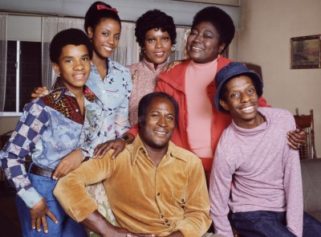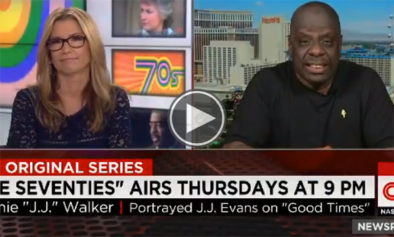Jimmie Walker will always be famous for his role as James “J.J.” Evans, Jr. from the landmark 1970s television show, Good Times. In recent years, he’s become infamous for making explosive declarations such as describing himself as “a black sheep in the Black community” in an interview with CNN in 2012. Then, in a 2013 NPR interview, he said, “The point is to make money, and therefore, the networks themselves have stopped doing any ethnic shows because they don’t want the aggravation.”
If these remarks weren’t enough to warrant an effigy burning in 140 characters or less, Walker stated recently in another CNN interview that because of the Black community, “you’ll never see a poor, Black family on TV again.” The all encompassing, but vaguely defined “Black community” seems to grind Walker’s gears. While Walker’s recent remarks ring with a certain “angry old man, get off my lawn” quality, the remarks are not without a mustard seed on honesty, and insight.
Seeing a poor Black family on television isn’t ideal, but most successful Black shows from the past and present allude to, discuss and sometimes show in flashbacks that the central characters come from poverty; it’s always on the peripheral. Moving up to the upper middle class is more often than not a critical part of the back-story. There are always special episodes centered on a former friend or acquaintance coming from the old neighborhood to start trouble, or trying to integrate themselves into the main character’s new life. Good Times, like every Black television show before it and since, has to balance authenticity without being stereotypical but must also keep it 100, and be relatable while serving the greater good of the Black community.
Balancing this scale is often difficult, but never impossible. The perfect show that encapsulates of all the above is the excellent Starz sitcom, Survivor’s Remorse. The main character is a professional basketball player who has just signed a mega contract, and moves his family with him to his new life. The characters are adjusting to their new circumstances while still dealing with people from their poverty stricken upbringing.
It’s a good thing to show Black prosperity and it’s a great thing to show its accessibility, but it’s important to show the process by which it happens. With a recession that’s still not letting up, an expanding wealth gap and a disappearing middle class, some rich and powerful stories can be from the point of view of a family in poverty.
Just because it takes place on a lower economic ladder rung, it should not be tossed to the side. It doesn’t have to be like Good Times, nor should it be. A show can deal with serious issues without being solemn in presentation.
It’s typical for television shows nowadays to challenge audiences more with complex narratives. It could also ignite a national debate about the true quality of life in this country. Any and every point of view about Black lives in America should be valued, or at least that is what J.J. was likely trying to say.



